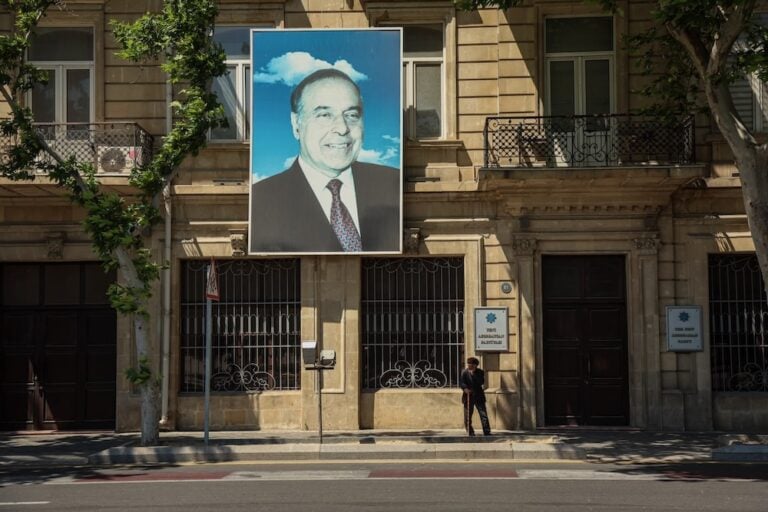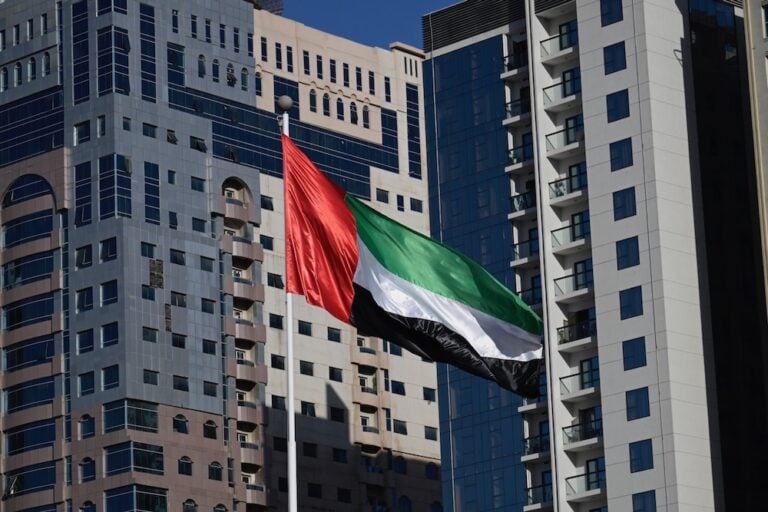Once every four years the UN Human Rights Council holds a public review of each of the 193 member states of the UN to examine their human rights records. The second such review for the UAE since the process known as the Universal Periodic Review (UPR) was instituted in 2006 took place on 28 January 2013 and highlighted severe human rights challenges that the country still faces.
(CIHRS/IFEX) – 31 January 2013 – The United Nations working group of the Universal Periodic Review (UPR) met on the 28th of January to review the human rights record of the United Arab Emirates (UAE).
Despite Ambassador and State Minister of Foreign Affairs Anwar Mohammed Gargash’s statement that the UAE could be described as a UPR ‘success story’, emphasizing efforts made towards implementing the majority of recommendations that were issued during the first cycle of the UPR in 2008, many state delegations underlined the severe human rights challenges the country still faces, especially with regards to freedom of expression and assembly, torture and arbitrary deprivation of the citizenship of human rights defenders, said the Cairo Institute for Human Rights Studies (CIHRS).
The delegations of the United Kingdom, Sweden, Germany, Canada, Austria, Australia, Ireland and Belgium recommended that the UAE uphold freedom of expression. The United Kingdom, the USA, Ireland, Canada and Sweden cautioned that the UAE’s recently passed law on combating cyber crime (Federal Decree N.5/2012) may infringe on freedom of expression and freedom of assembly given that the law criminalizes calling for unauthorized demonstrations among other repressive measures. Belgium urged the UAE to end the practice of treating human rights defenders exercising their right to freedom of expression as criminals.
Australia, Austria, Norway and Belgium also encouraged the UAE to align their penal legislation to international standards with regards to freedom of assembly. France, Finland, Guatemala, Belarus and Costa Rica encouraged the government of the UAE to ratify the International Covenant on Civil and Political Rights, as well as the International Covenant on Economic, Social and Cultural Rights. Mexico, Portugal and the United Kingdom, amongst others, urged the UAE to ratify the optional protocol of the convention against torture.
Many delegations such as Côte d’Ivoire, Mexico, the Netherlands and Belgium encouraged the UAE to collaborate with the Special Procedures of the Human Rights Council, to accept requests for visits by UN rights experts, and to issue standing invitations to special procedure mandate holders.
‘While these recommendations reveal the UAE shortcomings in terms of the protection and promotion of human rights, it is nonetheless somewhat disappointing that the statements of state delegations have not adequately reflected the severity of the crackdown on freedom of expression and on human rights defenders which is currently taking place in the country under the pretext of national security and counter-terrorism’, said Ziad Abdel Tawab, Deputy Director of the CIHRS.
While some challenges have been underlined by certain delegations, the growing trend of systematic human rights violations in the UAE, including acts of reprisals against human rights defenders for engaging with the United Nations, as well as the issue of discrimination against the Bedoon community in the country have on the whole been overlooked. The delegations of Norway and of the USA were the only state delegations to express concern over arbitrary detention and arrests, lack of fair transparent judicial process and to demand the release of individuals arrested for peacefully expressing their demands for reform within the country.
A joint NGO letter published on 28 January by five Arab and International NGOs decries the ongoing crackdown against human rights defenders and political activists in the UAE since March 2011. The letter calls on the UN Human Rights Council, where the UPR takes place, to act to combat the grave human rights violations occurring in the UAE and urge the UAE government to uphold its commitments to promoting and protecting the human rights of all people living on its territory.
Beyond the recommendations made by state delegations, NGOs urge the authorities in the UAE to:
- Release immediately and unconditionally all prisoners of conscience and activists including human rights defenders or ensure that detainees deemed to have broken the law be brought before an independent and impartial judge, be charged with a crime and be provided with the legal assistance of their choosing.
- Halt all persecution of human rights defenders and those peacefully expressing their opinions, including on-Line activists. Immediately release and expunge the convictions of those convicted for expressing their opinion peacefully and Ensure that Federal Legal Decree No. 5 for 2012 on combating cyber crimes is in full conformity with relevant international norms namely the right to freedom of expression and association.
- Take all necessary measures to ensure that torture and ill-treatment ceases in all places of detention; that all cases of torture be investigate by impartial and independent authorities; and that torturers be held accountable for their crimes.
- To ensure that all trials meet international fair trial standards, including the full independence of the judiciary, and that all those detained arbitrarily are released as quickly as possible.
- To end to discrimination against the Bedoon community, including in the application of its nationality law.
- Guarantee in all circumstances that all human rights defenders and activists in UAE are able to carry out their legitimate human rights activities without fear of reprisals and free of all restrictions including judicial harassment.


